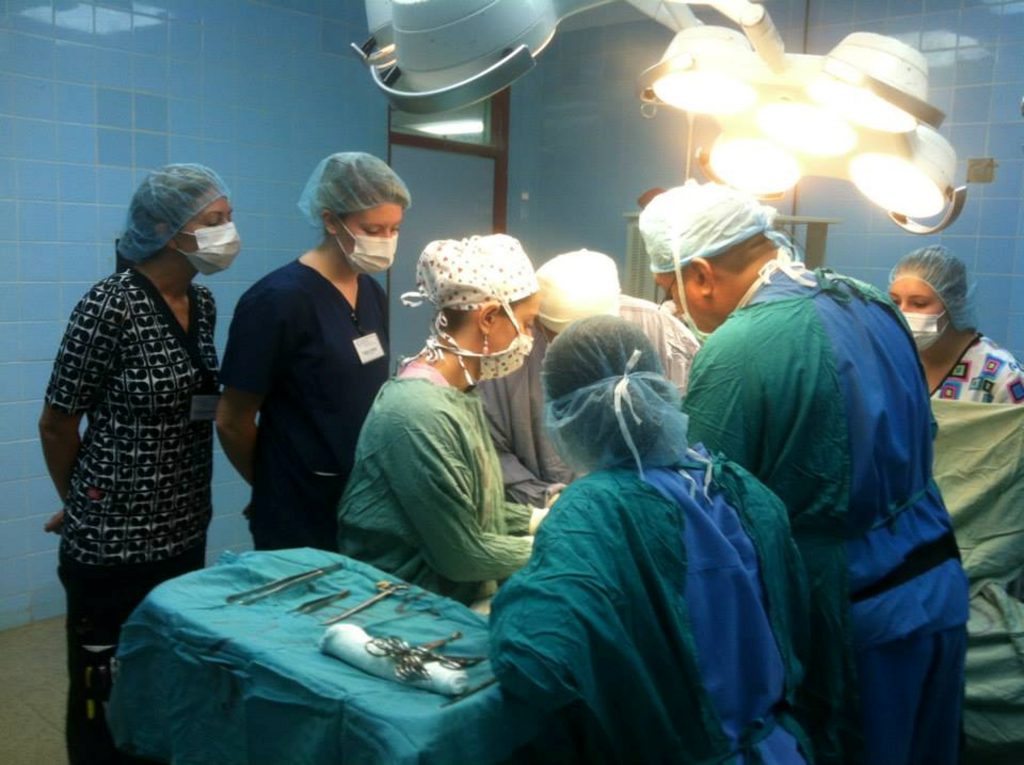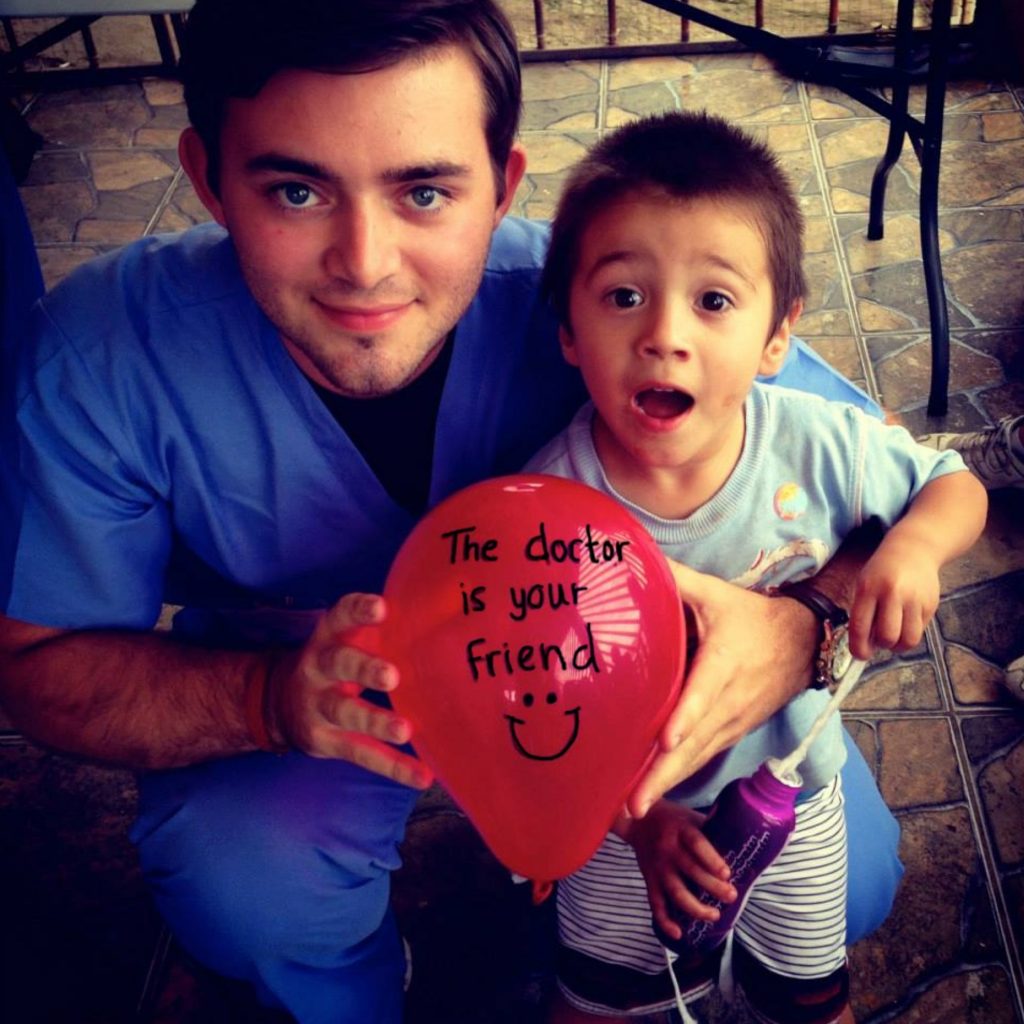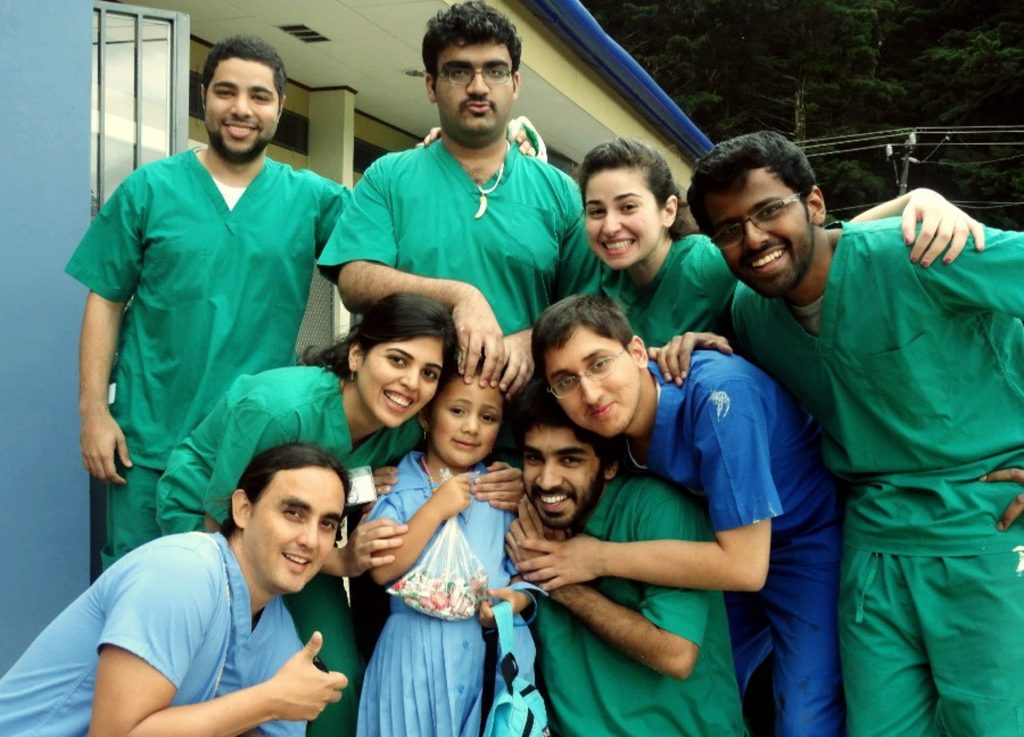Our goal is to provide experiential learning opportunities and cultural expansion for licensed health professionals and graduate level healthcare students (MD, DO, PA, APRN) while allowing those in our partner communities to benefit from a physical exam and treatment from a healthcare team supervised by a licensed medical professional.
About Graduate Medical Teams
ISL’s graduate medical teams provide medical care and public health education in partnership with local community agencies. From urban centers to small towns and villages in remote areas, our graduate medical teams work in field clinics assessing patient needs and treating both acute and chronic conditions. Volunteers have the opportunity to provide valuable services in developing communities, while increasing their own cultural competency skills.
Who Is Right For Graduate Medical Teams?
ISL’s graduate medical teams are reserved for licensed health professionals and graduate level healthcare students.

What to Expect
Upon arrival in-country, you will be met at the airport by ISL staff. Your team’s first day will be busy with orientation and training seminars and learning medical terminology (in Spanish or Swahili dependent on your destination) and local use of natural medicines; then the community work begins!
On a Graduate Medical team, you will work in our partner communities in the following ways:
- Visit homes to assess the needs for health care
- Evaluate living conditions making connections between lifestyle and health issues
- Bring/distribute educational materials
You will invite those in need of medical care to a field clinic staffed by local, licensed medical professionals. At the clinic, you will rotate through stations taking turns doing the following:
- Conducting patient interviews/intake
- Triage, obtain vital signs, and conduct thorough medical exams
- Conduct diagnostic exams as needed
- Diagnose and treat underlying conditions
- Administer medications as needed and prescribed
- Educate patients and families on self-care as well as availability of local resources
- Set up and participate in pharmacy stations
- Lots of community interaction!
In addition to the community experience, ISL will provide an opportunity to gain clinical time in a healthcare facility where students will be matched with local MD’s.
All the above is done via a team translator as it is not expected that the student has comprehension of the local language. Of course, if you are fluent, you will then have the unique experience of being able to conduct the entire patient experience with little need of an interpreter. However, due to local colloquialisms and verbiage specific to that community, we highly recommend that you utilize the interpreters that are provided!
Be aware: there will be virtually NO down-time during your ISL program. This is an immersive, intensive experience loaded with service activities and cultural exploration!
In the evenings, you will participate in seminars on prevention and treatment of diseases common to the area. There will also be designated time for group reflection – time to discuss and express what you’ve experienced in your day’s community work, either formally or informally.
Your team will eat most dinners out in order to relax and experience the local culture and cuisine. You will learn a few traditional dances and explore some important historical/cultural sites.
Recreational opportunities vary by location, but you will have opportunities like: shopping for local crafts and exploring geographic treasures such as beaches, volcanoes, rainforests, or caves. Traverse ruins, tour city centers, or trek through coffee plantations, and have time for other exciting activities such as ziplining, snorkeling, or safari!
Volunteer Involvement
ISL collaborates with in-country professionals and local Ministries of Health to determine how our volunteers can best impact developing communities. US licensed health professionals and graduate level health professions students are able to work at professional capacity in most locations.

Safety and Respect
Respect of our patients
Patient consent is, of course, an essential pre-requisite for any level of volunteer participation. All patients sign a consent form to be seen by a local doctor who is overseeing students that will be collaborating in their care. We have their complicit consent to treat prior to their intake and examination.
Our patients are protected from exploitation – we are discreet and respectful. We do NOT under any circumstances take photos of any procedure during a patient’s visit. Furthermore, patient rights must be respected at all times; Patients have the right to refuse treatment.
ISL prohibits discrimination on the basis of color, national origin, disability, sex, gender identity, religion or any other factor.
Volunteer Safety
For the sake of security, ISL volunteers remain together as a team from arrival to departure, and are accompanied by ISL staff at all times.
The safety of our volunteers is our number one priority. ISL has offices in all of the countries that we serve. That means wherever you go, rest assured, we’re there too. All ISL regional staff members are thoroughly screened to ensure the safety of your team’s local interactions and we continuously monitor and address all emerging health and safety issues in each of the countries we operate.
Specific precautions taken by ISL
- ISL teams avoid large, crowded areas like sporting events whenever possible
- We continuously monitor local media and information sources in each of our countries through our on-site staff, and take appropriate actions to avoid areas of concern
- Our on-site staff provide feedback on the local situation in each community we work, and if recommendations are made to change itineraries or programming, we do so immediately
- Our management team relies on the advice of a number of organizations including the U.S. State Department, the World Health Organization and Centers for Disease Control, the Federal Aviation Administration, the National Transportation Safety Board, as well as an international safety and security organization. If conditions exist that may hinder our ability to provide a safe program, we will alter the itinerary and redirect the program to safer regions or provide other alternatives.

What To Bring
You will need:
- Stethoscope
- Blood pressure cuff
- Otoscope
- Scrubs
- Donations of medications (optional)
- Medical supplies (optional)
- Refillable water bottle (i.e. Nalgene bottle)
- Funds sufficient to cover one meal per day, recreation, incidentals, souvenirs and departure tax (where applicable).
- An open-mind
- A sense of adventure
- A heart of service
What ISL Provides
- 24-hour accompaniment by professional, bilingual staff
- Airport pickup/drop off
- All ground transportation
- All lodging
- Two meals per day
- Drinking water
- Instruction by licensed medical professionals
- Medications and supplies
- Quality experiential learning
- A meaningful glimpse into another culture
- An unforgettable adventure
